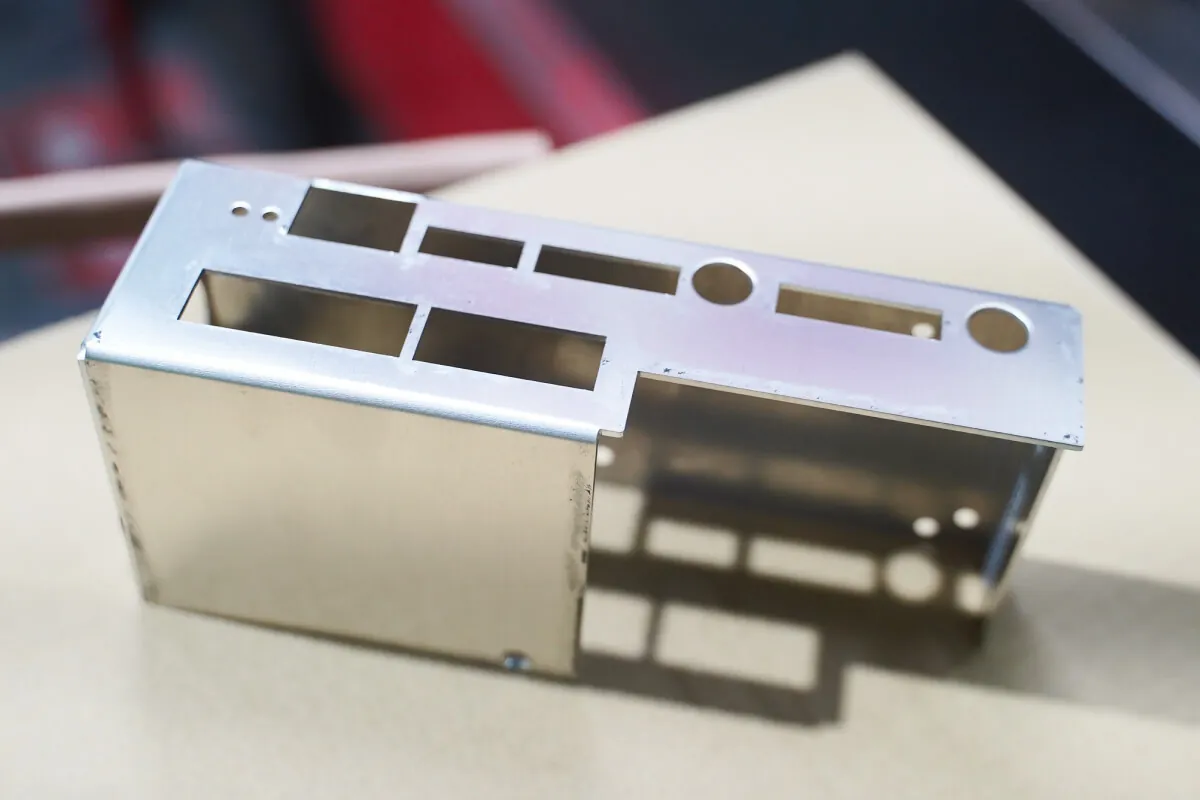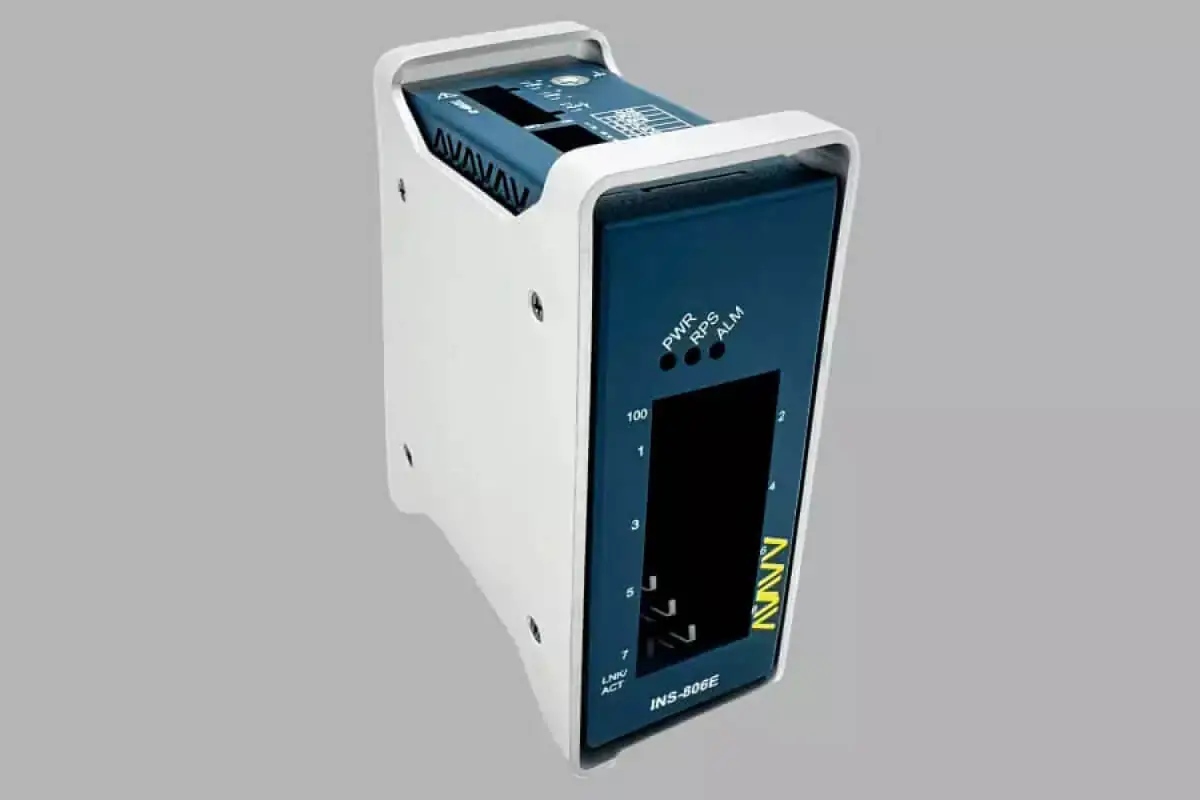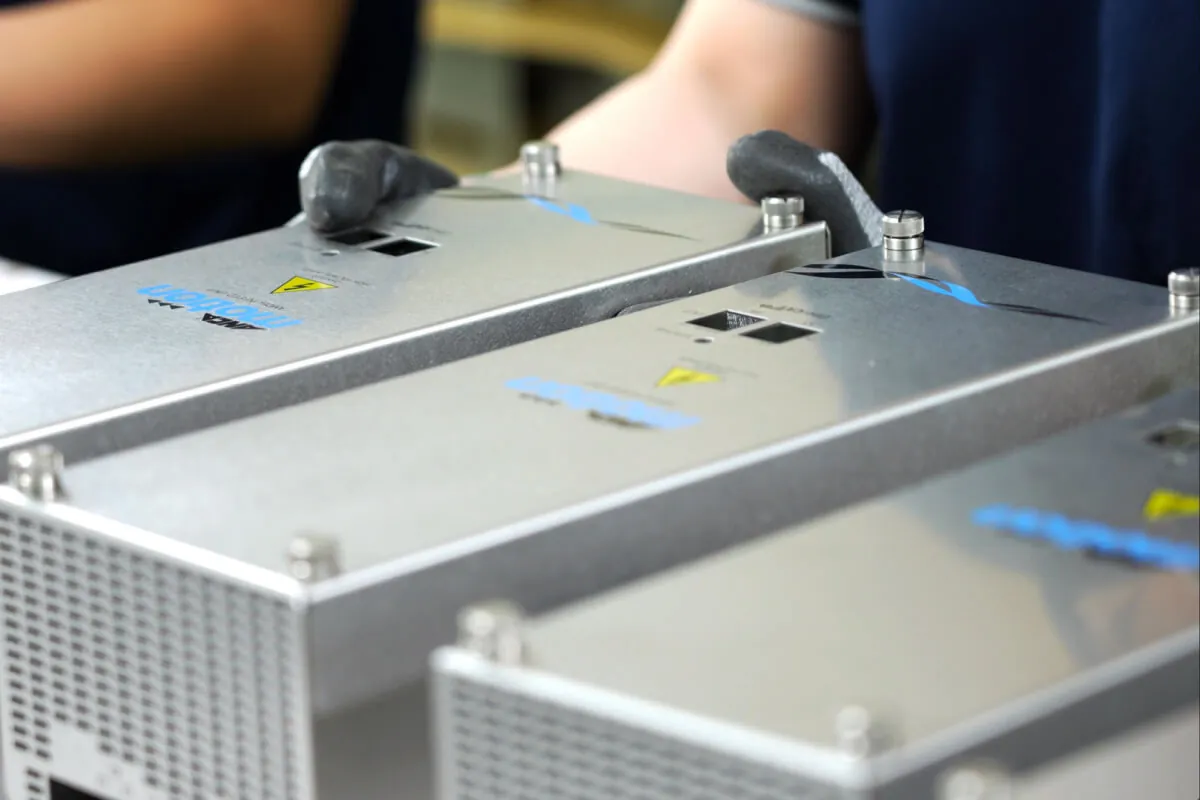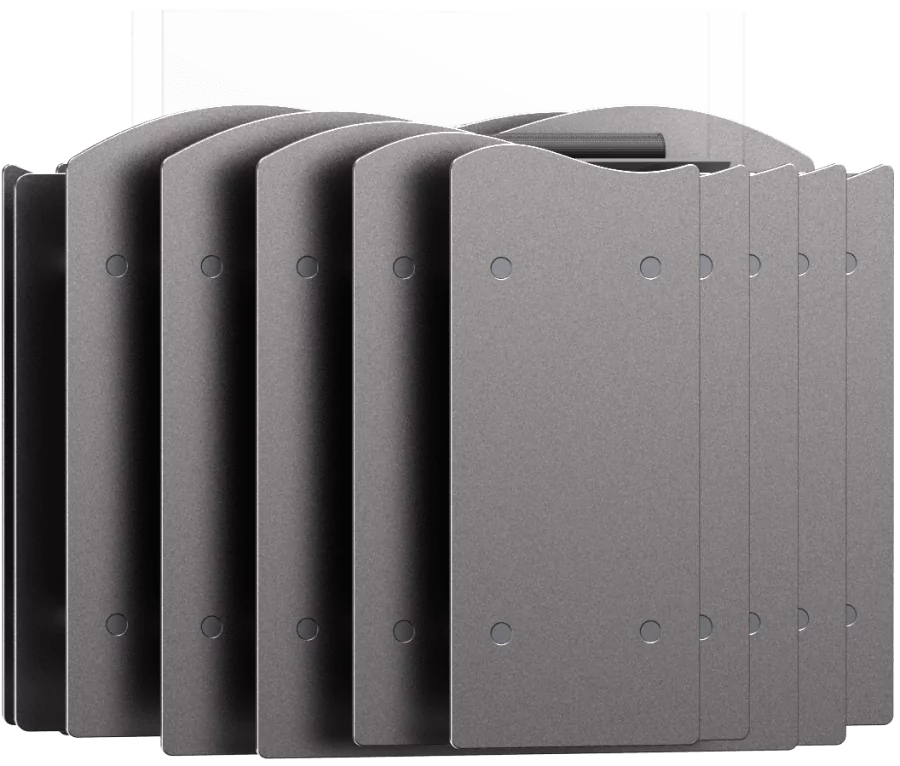Custom sheet metal fabrication in 2025 has come a long way since metal fabrication was split into cutting, machining, welding, and assembly. In 2025, custom sheet metal fabrication supports essential industries including aerospace, construction, automotive, electronic and healthcare equipment manufacturers. Let’s take a look at sheet metal fabrication methods and consider the reasons you might choose a custom sheet metal fabrication provider for your project.
What is sheet metal fabrication?
Sheet metal fabrication includes familiar sheet metal products that are supplied by sheet metal fabrication providers to the construction industry. Roof gutters, air conditioning ducts, flues, mailboxes, sheet metal roofing and industrial building panels, screens and safety guards are all examples of metal fabrication. These sheet metal products are often manufactured on an industrial scale in large volumes.
Metal fabricators use sheet metal manufactured from raw or recycled steel, stainless steel, aluminum, copper and exotic metals and alloys supplied in industrial standard sheet sizes, which are cut, formed, folded, and pressed into component parts that are joined by welding, riveting, screws, bolts and adhesives for assembly into completed products. The same methods are used for standard and custom sheet metal fabrication processes.
How old is sheet metal fabrication?
In 1485, Leonardo da Vinci sketched a design for a “rolling mill” in one of his notebooks, which is considered the first documented concept of a machine used for sheet metal fabrication, marking a significant early step in the development of modern metalworking practices; essentially, this design laid the foundation for the rolling mills used in sheet metal fabrication today.
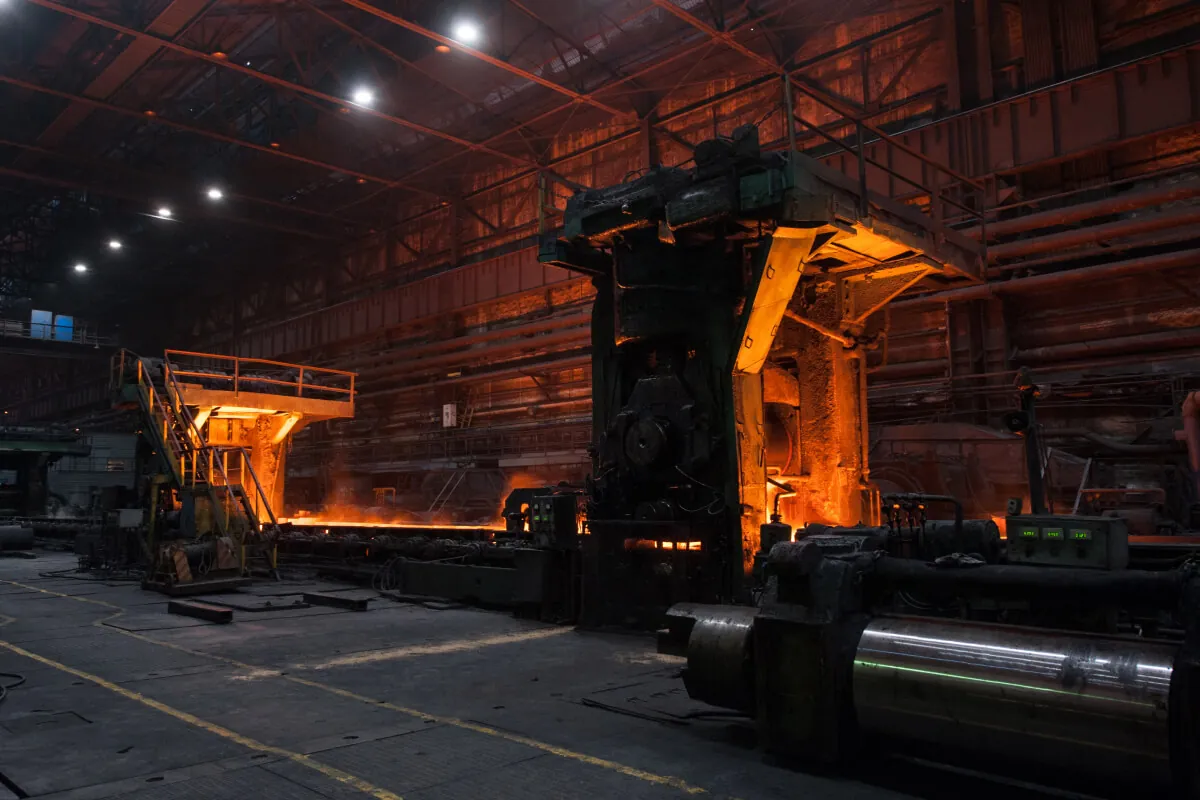
Leonardo designed a machine that would flatten and reduce the thickness of metal by passing it between rotating rollers. This process revolutionized the way metals were worked. The technology has advanced significantly, as seen in the picture of a modern rolling mill above, but core principles from Da Vinci’s design are still used in modern rolling mills used for sheet metal fabrication.
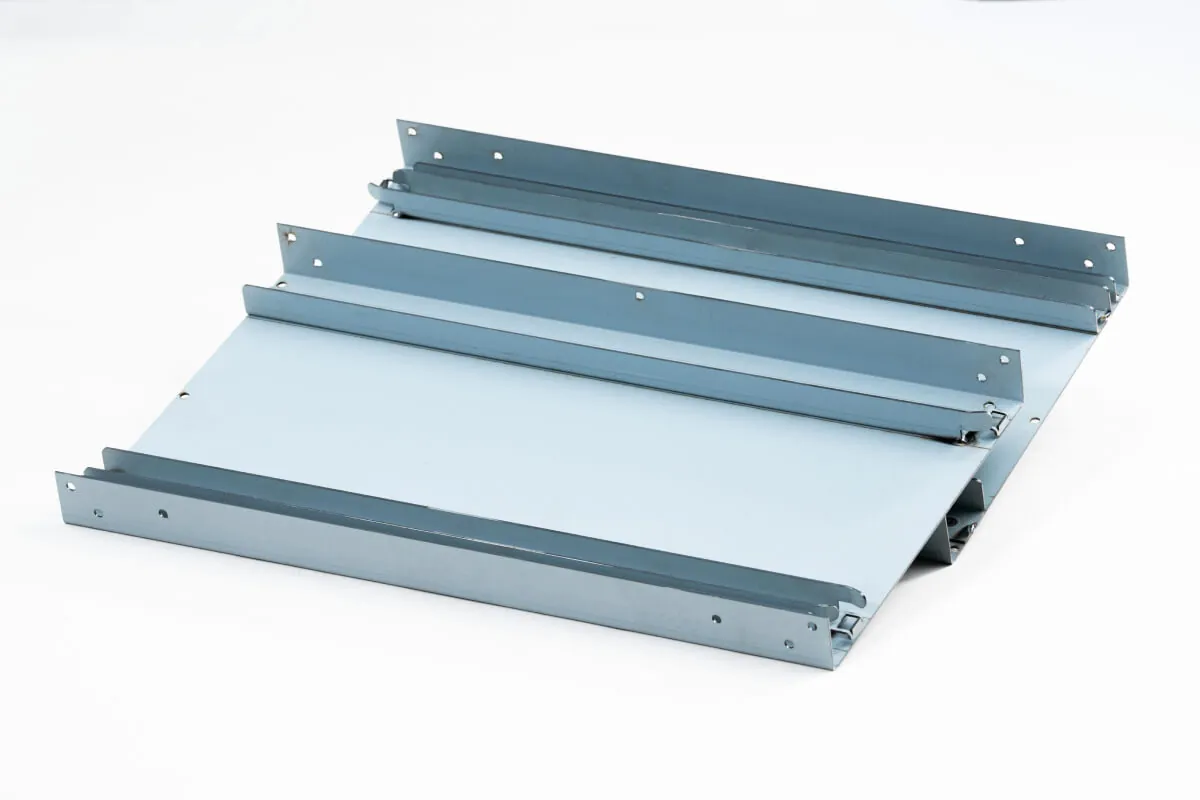
How does sheet metal fabrication work?
Sheet metal fabrication uses machinery and manufacturing processes to produce high-quality products. Sheet metal is sourced from a wholesaler or directly from a metal mill. The sheet metal is then cut, folded, formed, bent, engraved, welded, joined with sheet metal fasteners, assembled and may have different finishes applied during the manufacturing process.
Standard tools used by sheet metal fabricators include laser cutters and engraving machines, punch presses, press brakes and other sheet metal bending and forming machines. For high-quality and custom sheet metal fabrication, laser cutters and laser punch cutters are often used to make very clean cuts without discoloration from excess heating that can be caused by disk cutting.
Laser cutters are very good for detailed and intricate sheet metal work, and laser cutting is suitable for a wide variety of sheet metals, including hard carbon and tools steels and titanium as well as soft materials such as aluminum, copper and brass. Many different types of metal are used in sheet metal fabrication, including over 3,000 different grades of steel designed for a variety of different purposes.
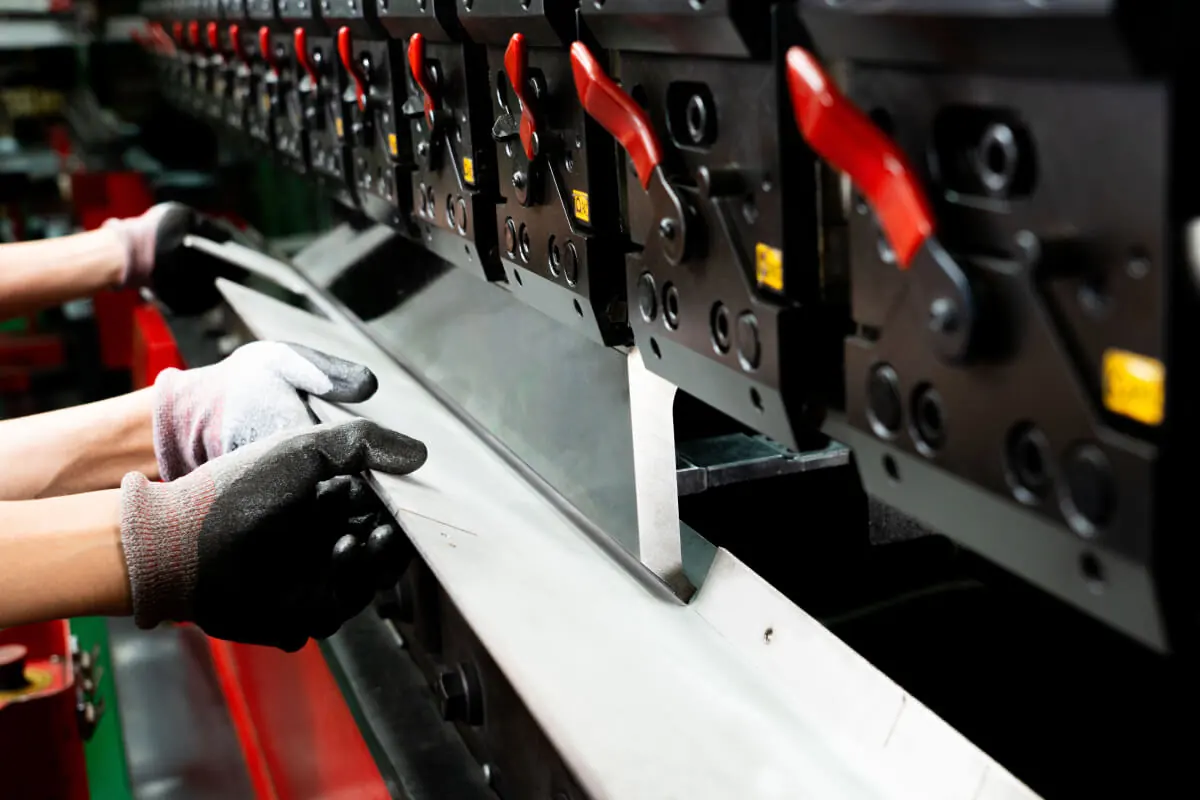
What are the different metal fabrication processes?
All sheet metal fabrication processes start with a design. This can be provided directly to sheet metal fabricators by a product engineer or designer, who will then receive cost estimates and production scheduling based on the skills and capabilities of specific sheet metal fabricators.
Some fabricators can provide expert input to the product designer to assist in refining and improving the design, this is an especially useful service for custom sheet metal fabrication, where production volume may be small and the designer may not have extensive metal fabrication experience.
Once the design is finalised, the fabricator will order sheet metal, bar, rod and tube materials to complete the project. Having a nearby reliable source of appropriate sheet metal materials is a major benefit for any sheet metal fabrication project as it reduces costs and improves product quality. One of the reasons why Taiwan is such a successful manufacturing center is the combination of high quality engineering with excellent availability of materials.
What are some typical sheet metal fabrication processes?
- Stainless steel fabrication
- Non ferrous sheet metal fabrication
- Sheet metal laser cutting processes
- Combination laser punch cutting of sheet metals
- Sheet metal bending
- Sheet metal welding
- Assembly of sheet metal fabrication products
For a standard sheet metal fabrication project, the next steps are to process the materials through the various cutting, punching, forming and finishing processes for final assembly. This can be a highly routine process, especially for an experienced and well equipped sheet metal fabrication workshop.
Custom sheet metal fabrication projects usually involve the fabricator more closely in the design process and may require special techniques and customized processes, especially to ensure appropriate design for manufacturing. Any special requirements will be explained by the sheet metal fabricator in close collaboration with the product designer.
Assembly and finishing processes prepare the product for use. There are simple raw material finishes like brushing and graining with sanders, or polishing, as well as powder coating and plating options including PVD type finishes in a variety of different materials.
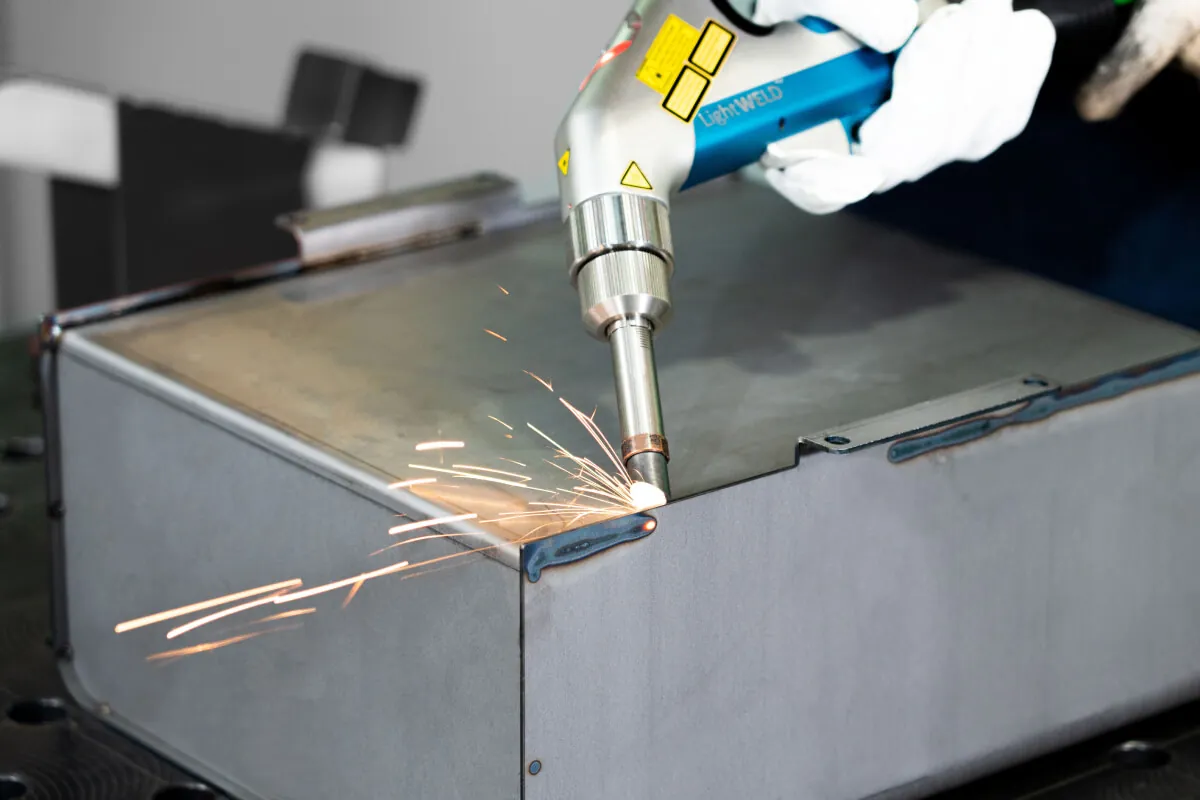
Are there many benefits of sheet metal fabrication?
Sheet metal fabrication can be a complex manufacturing process involving many stages, and is ideal for manufacturing high quality products where durability, strength, precision and appearance are important. There are six key benefits of sheet metal fabrication over manufacturing in plastics, composites or other materials.
What are the 6 key benefits of sheet metal fabrication?
- Appearance – sheet metal can be finished to very high standards
- Durability – much tougher than plastics
- High temperature resistance can be built into the design
- Cost efficient manufacturing in high volumes
- Versatile and resilient materials for a wide range of uses
- High precision manufacturing to calculated tolerances
Sheet metal fabrication is a logical choice when precision, temperature tolerance, strength and durability are important features of your project design. When you add the wide range of potential finishes, potential for high precision manufacturing and cost effectiveness of high volume manufacturing it becomes clear why sheet metal fabrication is the preferred method of manufacturing for many product designers.
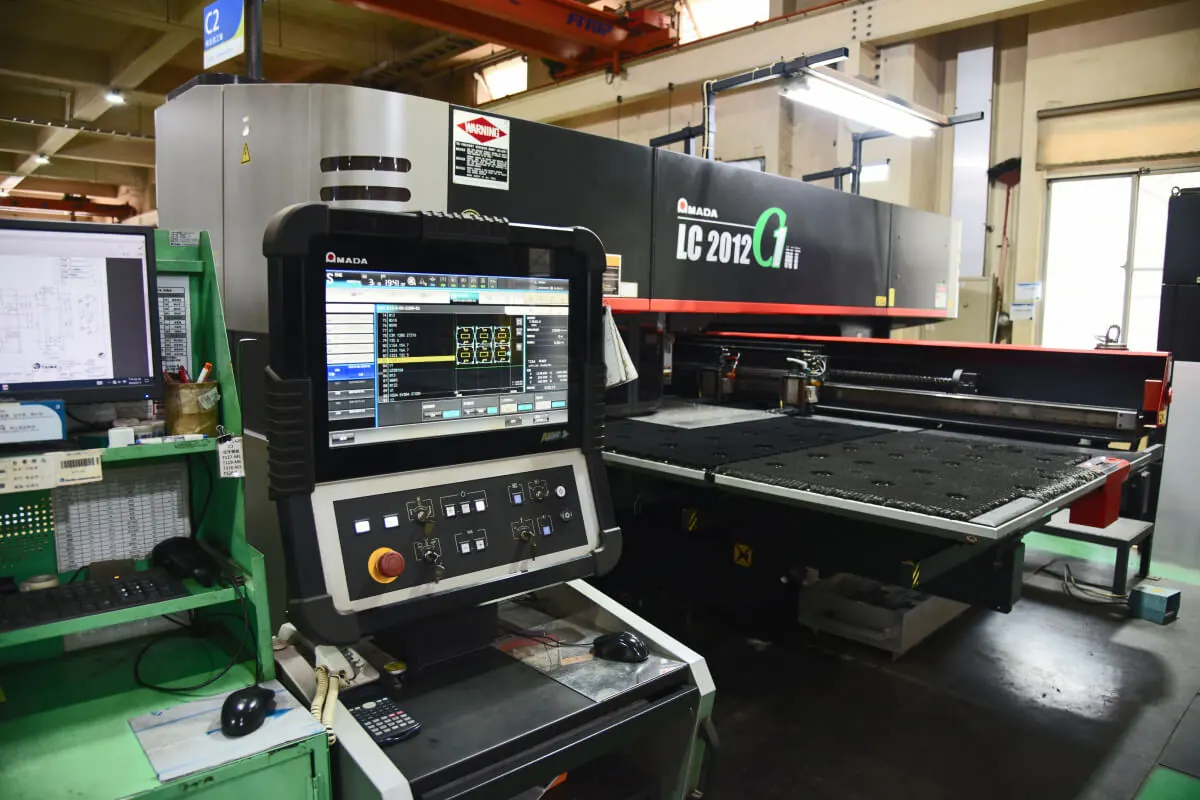
When do you need custom sheet metal fabrication services?
Metal fabrication is versatile and adaptable to a very wide range of products, including complex and detailed designs as well as bespoke, short run and artisanal creations like artworks and limited editions. The right fabricator can help you create a very high quality custom sheet metal fabrication product, which will both be cheaper to manufacture than alternative processes but will also give you more control over the production process and outcomes.
Custom sheet metal fabrication services are extremely helpful when you are planning a design, as although sheet metal fabrication is a flexible and versatile process there are limitations that a professional sheet metal fabricator will be able to discuss with you to guide you through successful design for manufacturing for custom sheet metal fabrication processes.
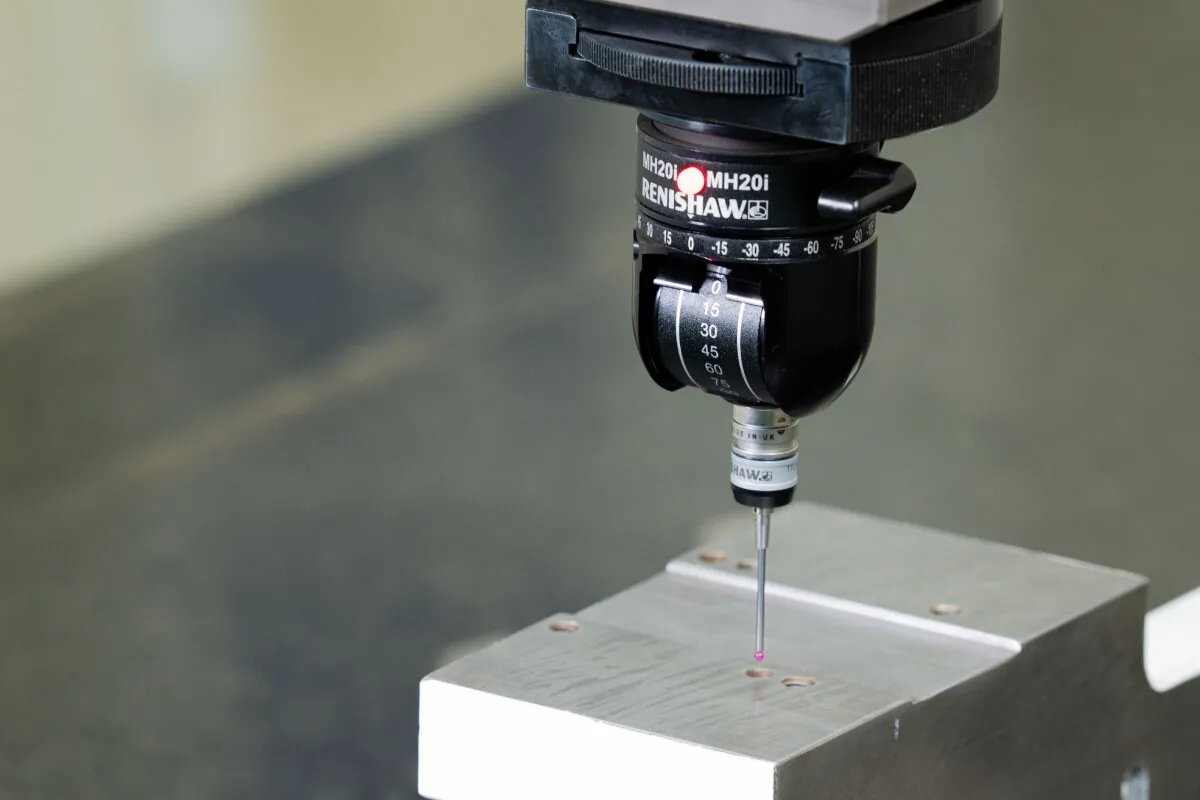
Taiwa: custom sheet metal fabrication with expert advice
Our design, manufacturing, assembly and shipping services enable you to find the best solution for any custom sheet metal fabrication project. Our systems conform to international quality standards, using advanced AMADA CAD/CAM design software to accurately model every bend digitally in advance to allow for deformation and spring-back, which reduces prototyping time and development costs.
- Expert, comprehensively trained designers & machine operators
- Friendly customer service & skilled engineering support teams
- All our machine operators have completed at least 300hrs of training and examinations
- TTQS Workforce Quality Certification (Taiwan)
- ISO 9001 & ISO 14001 certified
- Extensive library of dies & tooling reduces set up costs
- Precision Japanese AMADA cutting, punching & forming machines
- Material technology expertise
- Skilled assembly team with capabilities for complex products
- Long standing expertise in design for manufacturability
Taiwa brings 20 years of experience in precision sheet metal fabrication using state of the art Japanese AMADA press brakes and AMADA laser cutting and punching combination machines to guarantee the success of your project. We deliver extreme precision no matter how complex the design.
- Capacities up to 3000 mm sheet length
- 0.3 mm to 20 mm sheet thickness
- Flatness maintained to 0.2 mm
- Verticality within 0.15 mm
Our extensive library of dies, tooling and forming jigs reduces setup costs for metal folding and bending, and our efficient modern manufacturing processes are greener due to reduced energy consumption and waste. Contact us to find out how our sheet metal fabrication services can easily help you bring your sheet metal design to completion.

